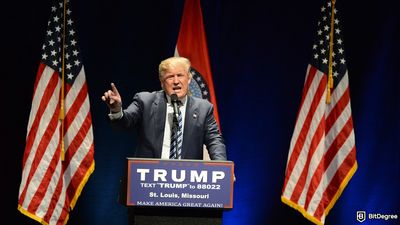The State Department will be bound to share information within 15 days of completing crypto rewards or payments.
The United States Department of State (or State Department), an executive department of the U.S. federal government responsible for the country's foreign policy and relations, may have to share information about rewards and payouts it made using cryptocurrencies.
According to the National Defense Authorization Act (NDAA), the State Department would have to inform the House Foreign Affairs Committee and the Senate Foreign Relations Committee about any payouts or rewards given in crypto within 15 days of making it.

Did you know?
Want to get smarter & wealthier with crypto?
Subscribe - We publish new crypto explainer videos every week!
What is a Crypto Bridge? (Explained with Animations)


Other than that, the State Department will be bound to share a full report for the same institutions mentioned above, justifying why cryptocurrencies were used to give rewards or make payouts. Regarding what should appear in the report, NDAA reads:
Evidence of the manner and extent to which cryptocurrency payments would be more likely to induce whistleblowers to come forward with information than rewards paid out in United States dollars or other forms of money or nonmonetary items.
On top of that, the Department should list all cryptocurrency payments and “whether the Department’s use of cryptocurrency could provide bad actors with additional hard-to-trace funds that could be used for criminal or illicit purposes.”
The State Department will have 180 days after completing the transaction to submit a detailed report.
On September 16th, United States President Joe Biden’s administration released a “first ever” comprehensive regulatory framework for cryptocurrencies. The framework and policy recommendations outline six key priorities: “consumer and investor protection; promoting financial stability; countering illicit finance; U.S. leadership in the global financial system and economic competitiveness; financial inclusion; and responsible innovation.”






















